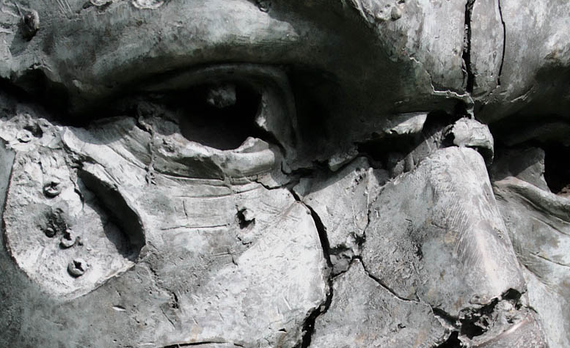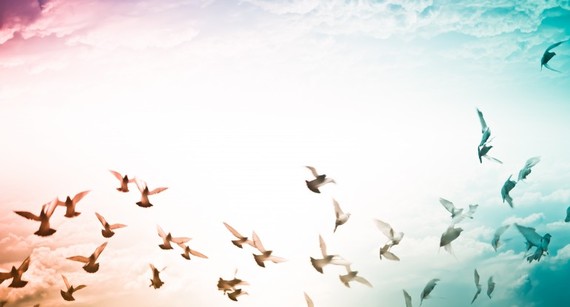
We all have secrets, things we may not be proud of, things we keep to ourselves because we don't want to risk hurting someone we love. In Latino culture we are taught from a very early age not to air our dirty laundry. Los trapos sucios se lavan en casa.
We are never to discuss in public that which happens behind closed doors even if it's at the expense of our mental and physical health. It is better to keep secrets and remain silent than to have people think ill of you or your family. In our culture perception is everything, which forces many to spend their lives pretending to be well when really, they're falling apart inside.
There are some secrets however (like sexual abuse for example) so detrimental to our own well-being that the weight of holding onto them slowly breaks a person down from the inside out. Generational conditioning forces many to continue this cycle of self-sabotage until there is nothing left resulting in decades of abuse, trauma, and self-destructive behavior. Most of which could have been prevented if only someone had the courage to speak. In her essay, How We Rationalize the Silences We Invade, Vanessa Martír states,
I've dissected these stories, written and rewritten them, sat with them, prayed with and for them. I've thought about how it's going to affect my family, my mother more than anyone. These are her secrets I'm revealing, her shame, that silence that has eaten through us like gangrene, a flesh-eating bacteria. This silence killed my brother.
Family ties are so important that protecting the family name becomes more essential than protecting the individual. For writers, particularly memoir and non-fiction writers, this is one of the struggles we face because how do we tell our stories without telling the stories of others? How do we keep the work authentic if we begin to cut out bits and pieces because we're afraid to hurt those we love?
So many of us tell ourselves that if we remain silent and hide our pain, that it will make our lives, and the lives of those we love, so much better. We force ourselves to believe that what happened to us in the past has no bearing on the present or the future, but it does. We are the sum of our experiences up to this point. We readily let others off the hook for having to carry the burdens of our narratives, and instead choose to carry that burden on our own; oftentimes turning to drugs, alcohol, and other self-destructive behavior to assuage the pain. In his essay, We are storied - together, Kevin Dow says,
Stories are what bring us together, what bind us together, what change us together and what tear us apart.
Sometimes the tearing apart happens internally. Years of unraveling trying to protect others while simultaneously destroying ourselves. I have seen this first hand happen to some of the people I love and I wonder if their lives would have turned out differently had they let go of the years of guilt and silence they carried with them.
Something beautiful happens when we decide to break free from the silence. When we tell our stories we begin to reclaim some of the power we lost. We begin to heal our wounds, our cracks, and our brokenness and begin the journey back to being whole.
How do we name our pain? How do we represent ourselves in a society invested in our silence? We don't heal in one fell swoop and then are suddenly free. Instead, healing takes time, and is often accomplished in layers; one step at a time, one day at a time. Rachel Freed says "We tell our stories to transform ourselves; to learn about our history and tell our experiences to transcend them; to use our stories to make a difference in our world; to broaden our perspective to see further than normal; to act beyond a story that may have imprisoned or enslaved us; to live more of our spiritual and earthly potential."
Each one of us has a story to tell, to share; stories that will come crashing into the world with an intensity that begs to be heard, to be felt despite what others may think of us. Our words hold more power than we think. Our stories demand to be told, if not for any other reason, than to set us free.
Toni Morrison said, "The function of freedom is to free someone else," and if you are no longer wracked or in bondage to a person or a way of life, tell your story. Risk freeing someone else. Not everyone will be glad that you did. Members of your family and other critics may wish you had kept your secrets. Oh, well, what are you going to do? ― Anne Lamott


